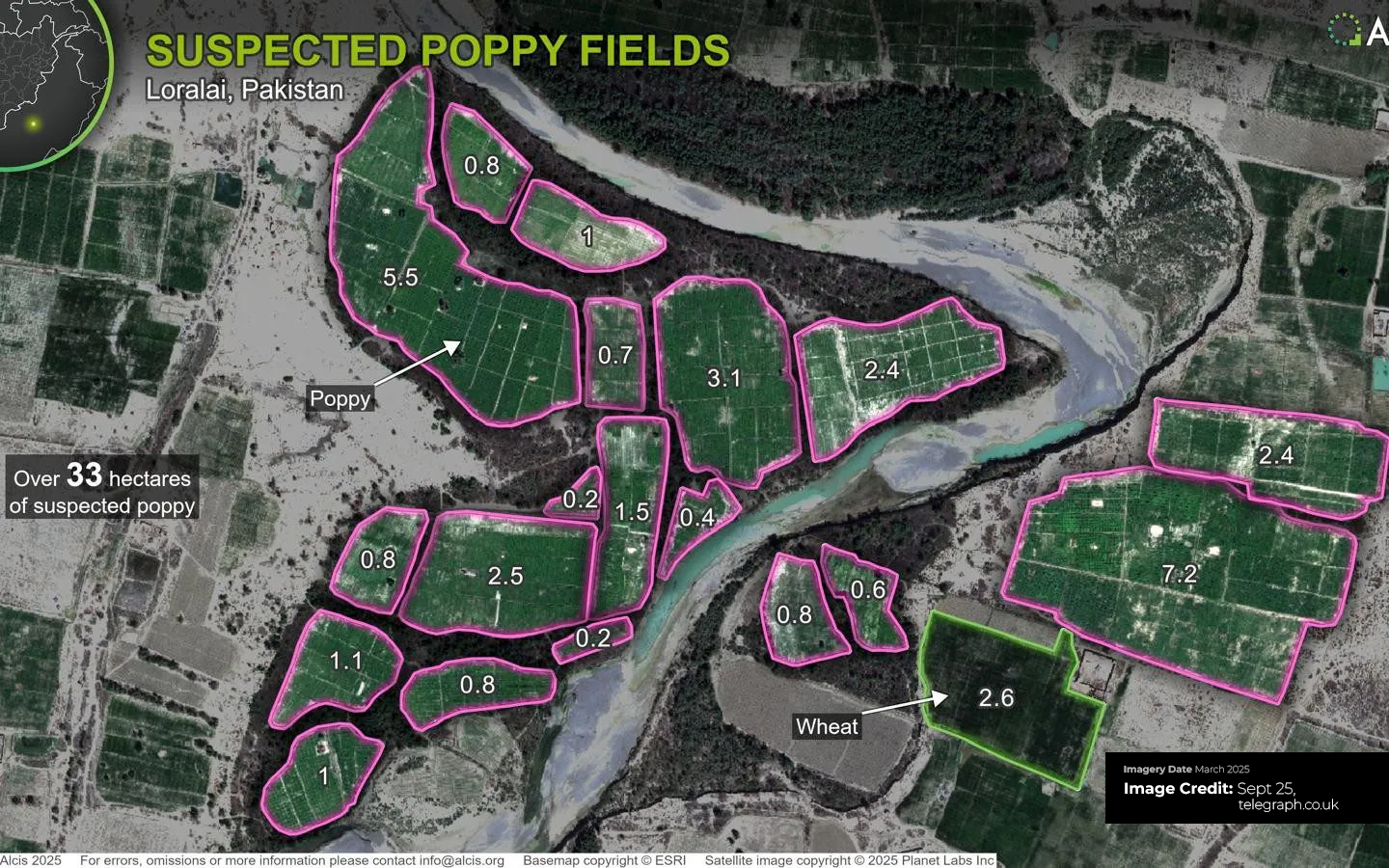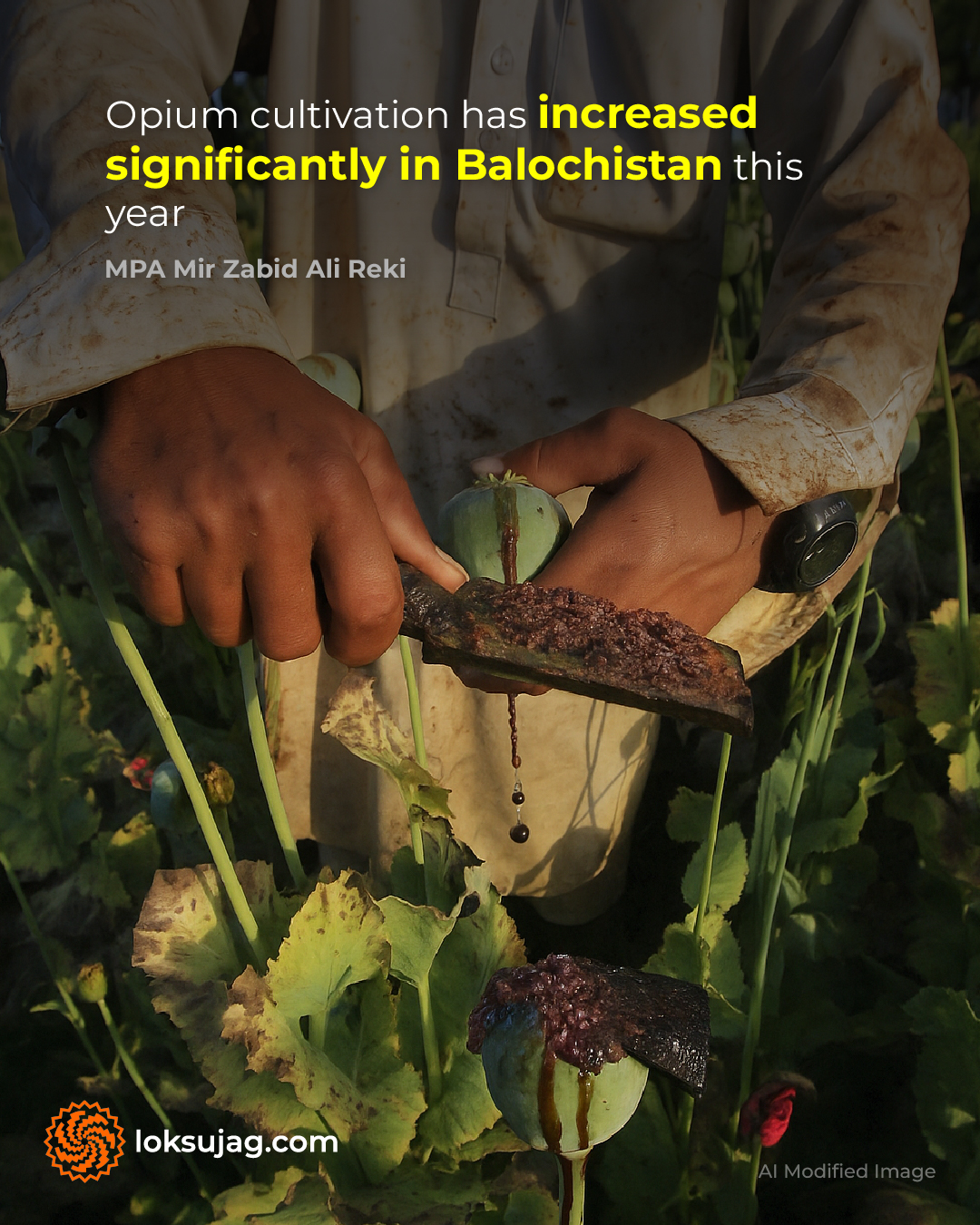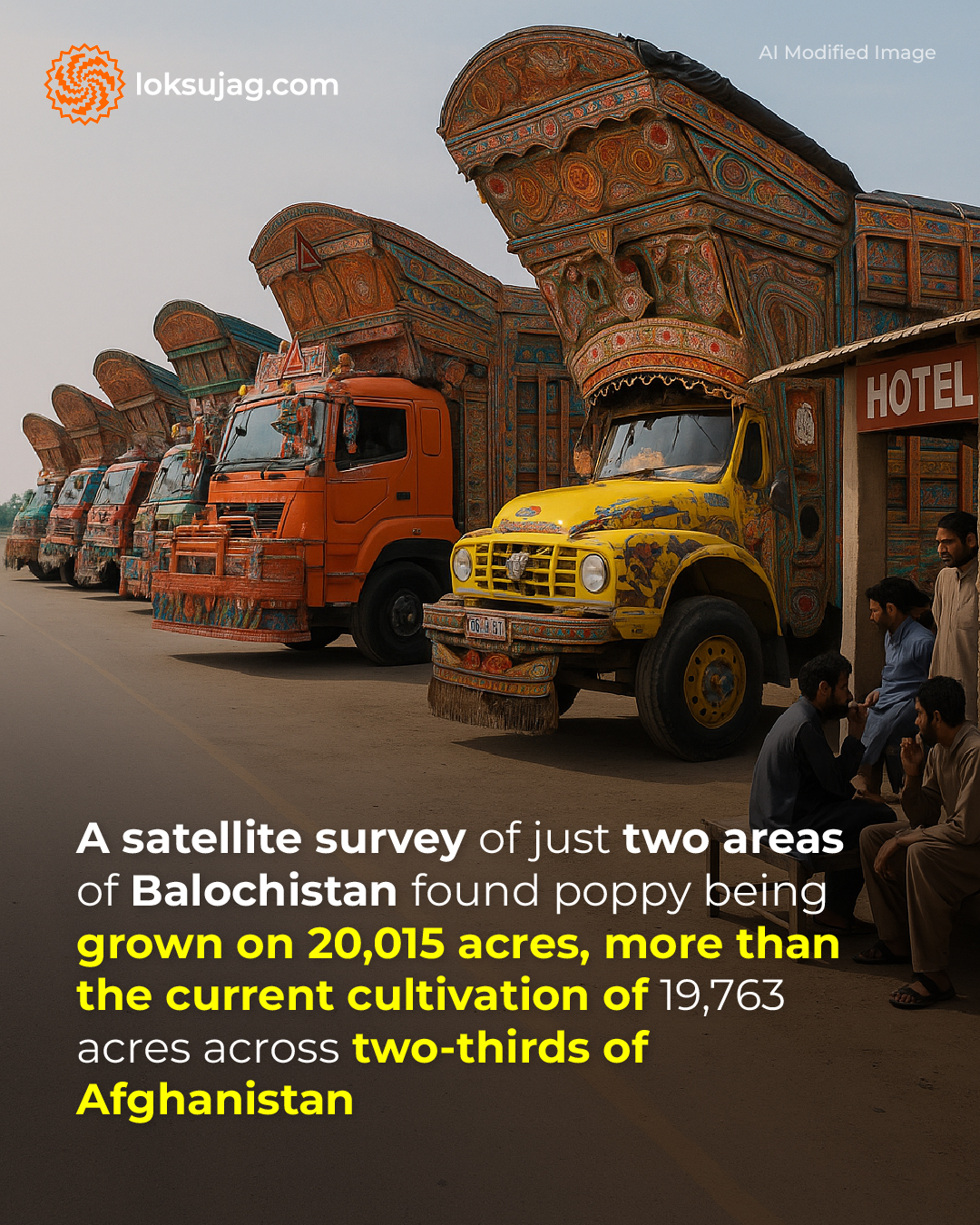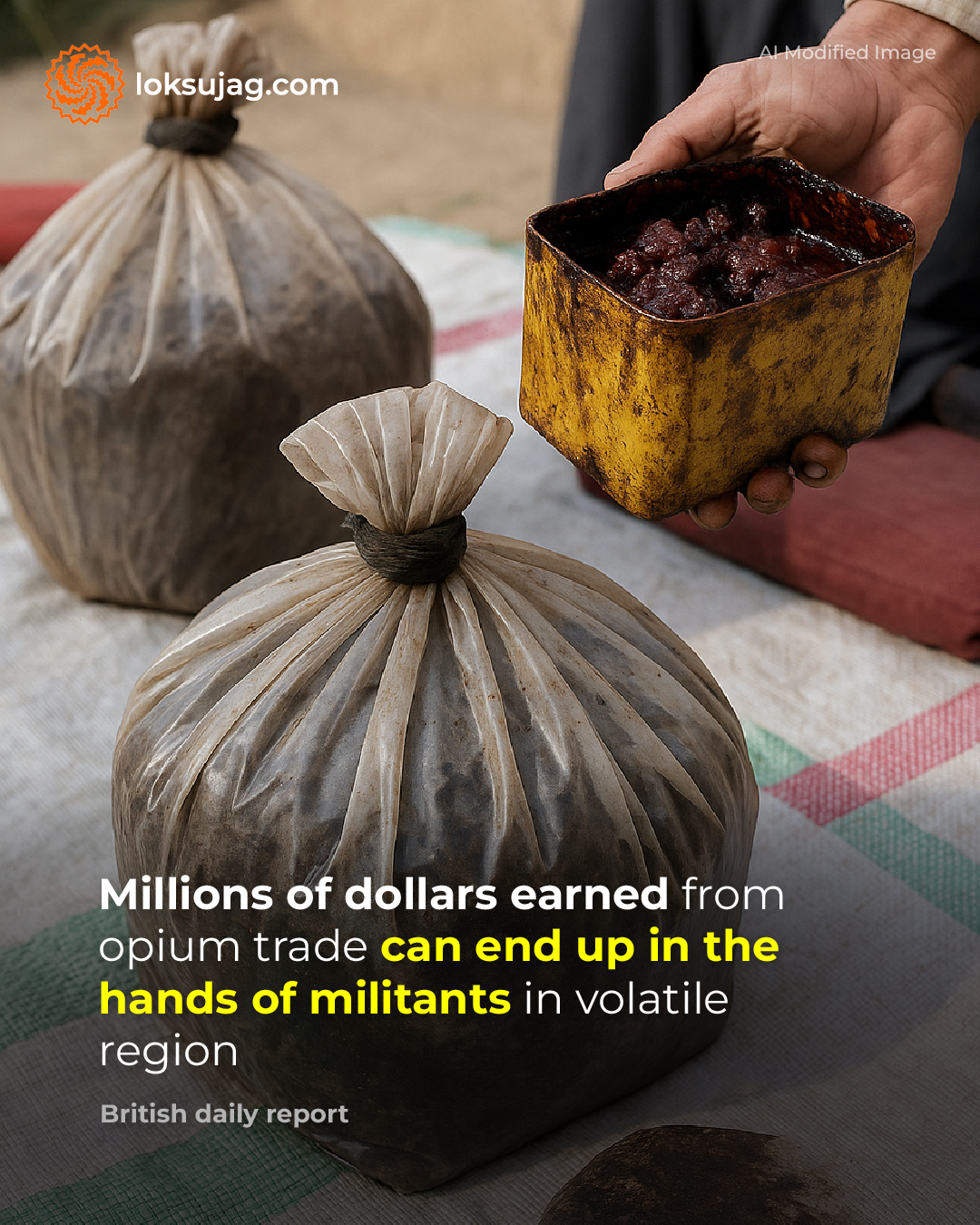Balochistan is now becoming the largest opium production centre in the world, replacing Afghanistan. This claim has been made in a recent report by the British newspaper The Telegraph. The report also expresses the fear that millions of dollars earned from opium trade can end up in the hands of militant groups and put the volatile region in further danger.
Balochistan Assembly Member Mir Zabid Ali Reki confirmed this while speaking to Lok Sujag. According to his information, opium cultivation has increased significantly in Balochistan this year.
Mir Zabid, who was elected from Washuk on the ticket of the opposition Jamiat Ulema-e-Islam in Balochistan, had also raised this issue in the provincial assembly. In response, the government members had assured that they would not tolerate poppy cultivation in the province. At the same time, the government members had requested the opposition to help them identify poppy fields.
A clear picture from the satellite
The Telegraph, however, has identified many poppy fields in Balochistan with the help of satellite technology of the geographic data collection company Alcis and published their images in its report.

According to the report, a limited survey conducted in just two areas of Balochistan has found that poppy is being grown on an area of 20,015 acres, which is more than the current cultivation of 19,763 acres spread across two-thirds of Afghanistan.
According to this satellite survey, only poppy is visible on 70pc of many fields in some places.
The report quoted David Mansfield, an expert on Afghanistan’s opium trade, as saying that Pakistan would surpass Afghanistan in poppy cultivation this year.
“The size of the poppy farms, many of which are more than five hectares, and their locations near built-up areas suggest “unrestrained cultivation that has not ever been seen in Afghanistan, even in its peak years of opium production,” Mr Mansfield said.
According to The Telegraph, during the time of the US-backed government in Kabul, 95 percent of the opium in Europe was smuggled from Afghanistan, but the Taliban banned poppy cultivation as soon as they took over. According to Mansfield, the price of opium in 2023 was $1,050 per kg, which has now decreased to $370, and one of the reasons for this is the increase in its production in Pakistan, due to which its supply has increased significantly and the price has come down.

People cultivating poppy even in their backyards
The Telegraph has blamed Afghan farmers for the increase in poppy cultivation in Balochistan. According to it, after the ban on poppy cultivation in Afghanistan, Afghan farmers have crossed the border to Balochistan. These farmers come and go despite the fence on the border and either take land on lease from local landowners or grow this crop as partners.
A research scholar from Balochistan disagrees. He told Lok Sujag, on condition of anonymity, that poppy cultivation used to be practised in the border area of Balochistan earlier, but it has increased significantly in the last two years. Now, in addition to Gulistan, poppy cultivation is also being done in the border area of Qila Saifullah, Chaman, Noshki and some areas of Loralai. He says that Afghan farmers are not cultivating poppy on lease or on share.
“It is true that Afghans have more experience in its cultivation, but most Afghans work here as farm labourers.” According to him, while solar tube wells have made agriculture possible in many areas of Balochistan, they have also boosted poppy cultivation.
“Now, anybody who has a little land in his backyard has cultivated poppy there,” he adds.

Where is the government and its security agencies?
The research scholar laments that all this is happening under the nose of security agencies.
“Corrupt officials take bribes from these areas. In the name of an annual operation, the Anti-Narcotics Force (ANF) destroys the crops of a poor farmer, takes pictures and then goes away. The same practice is repeated.”
The Telegraph quoted an Afghan migrant farmer as saying that it is not possible for them to acquire land and grow poppy without giving a share to the locals because they (the locals) also know the militias in the area.
“We have to pay money to law enforcement officials to send our produce beyond the fields.”
An Afghan farmer told The Telegraph that most farmers in Balochistan are livestock farmers and have no knowledge of agriculture or poppy cultivation.
Cultivating poppy and collecting the sap from it by cutting its pods is a very complex task that can only be done by the people with knowledge and experience. Another local farmer told The Telegraph that he had cultivated poppy for the first time this year.
“I know some Afghans who know how to cultivate it, but I have no knowledge or experience, so my production is less than other farmers in the area.”

Balochistan sitting on a gunpowder pile
Balochistan Assembly member Mir Zabid is concerned that the increase in poppy cultivation will make its availability cheap and widespread at the local level, which will increase the addiction among the youth of Balochistan. He demands the government take action against its officials who are glove in hand in this business and severely punish those who grow poppy and even those who lease their land for its cultivation.
International experts are also linking this issue to regional tensions. In the report, Michael Kugelman, senior fellow at the Canadian think tank, Asia Pacific Foundation, says that even under normal circumstances, Balochistan appears to be sitting on a gunpowder pile because ethnic insurgents and extremist groups are active here. Now, there are also sensitive installations and large-scale Chinese investment projects in the province.
“In such a situation, the drug trade further increases security risks.”
David Mansfield says that the profits from the drug trade go to the militants groups that control major smuggling and trade routes in Balochistan.
“People call Balochistan the new Afghanistan, which is a truly uncontrolled area due to the presence of militant groups.” The Pakistani government did not respond to the report.
Published on 23 Sep 2025



















